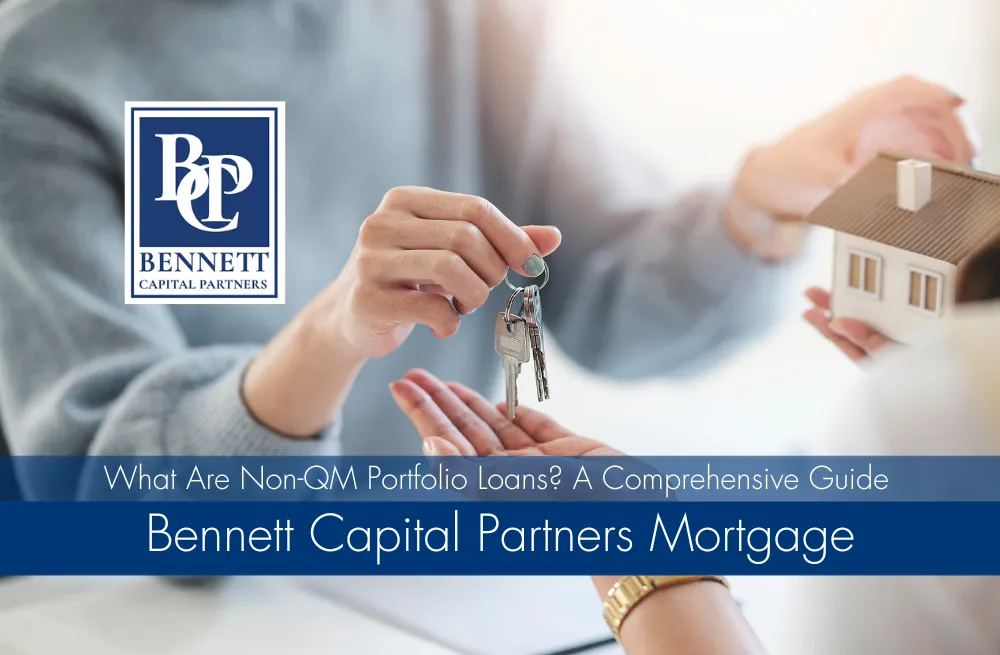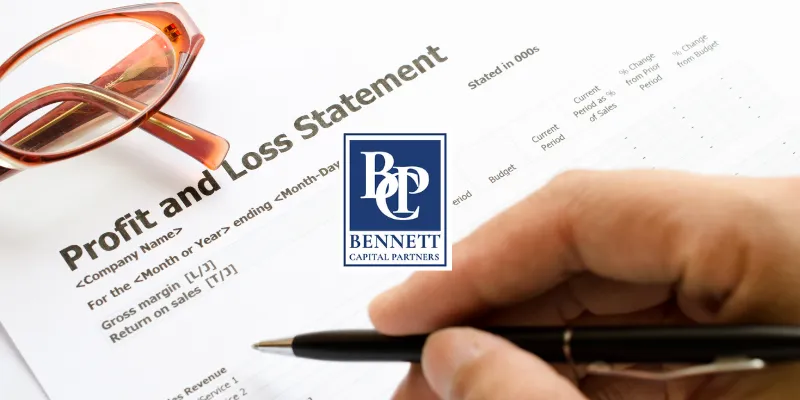Getting A Non-Qm Portfolio Loan: Your Key to Flexible Mortgage Options
Updated: Mar 24

If you're in the market for a mortgage, you may have heard of a non qm portfolio loan. These loans are becoming increasingly popular among borrowers who don't meet the typical mortgage qualifications, such as those who are self-employed or have a non-traditional income source. In this guide, we'll explain everything you need to know about non-QM portfolio loans, including what they are, how they work, and who they're suitable for.
Quick Navigation - Click the link below to jump to that section..
What is a Non-QM Portfolio Loan?

Non-QM portfolio loans are a type of mortgage loan that is not backed by government-sponsored entities such as Fannie Mae or Freddie Mac. Instead, they are originated and held by the lender or a private investor. Non-QM loans are designed for borrowers who don't meet the typical mortgage qualifications, such as those who are self-employed, have a non-traditional income source, or have a high debt-to-income ratio.
Non-QM portfolio loans can be a great option for borrowers who have unique financial situations that don't fit the traditional mortgage mold. These loans can offer more flexibility in underwriting requirements and can provide a way for borrowers to finance a home when they wouldn't be able to qualify for a traditional mortgage.
How Do Non-QM Portfolio Loans Work?

Non-QM portfolio loans are based on the borrower's ability to repay the loan, rather than their credit score or income. These loans typically require a larger down payment and have higher interest rates than conventional loans. Lenders may also require additional documentation, such as bank statements or tax returns, to assess the borrower's ability to repay the loan.
Non-QM portfolio loans are held by the lender or a private investor, which means they can offer more flexibility in underwriting requirements than conventional mortgages. This can be especially beneficial for borrowers who have unique financial situations or who may not meet the typical mortgage qualifications. To learn more about non-qm loan requirements read our blog post here.
If you're considering a non qm portfolio loan or a conventional loan, it's important to understand the specific down payment requirements before making any decisions. Consult with a broker at Bennett Capital Partners to discuss the Key Requirements for a Conventional Loan to your portfolio lending options.
📞 Call Us Today 305-407-0747
Who Is Eligible for Non-QM Portfolio Loans?

Non-QM portfolio loans are suitable for borrowers who don't meet the typical mortgage qualifications. This includes:
✔ Self-employed individuals
✔ Borrowers with recent credit events (Bankruptcies, Foreclosures, Short Sales)
✔ Borrowers with a non-traditional income source
✔ Borrowers with buying Non-Warrantable Condos
✔ Borrowers with a high debt-to-income ratio
✔ Foreign nationals
✔ Investors looking to finance investment properties
Non-QM portfolio loans are designed to help borrowers who have unique financial situations that don't fit the traditional mortgage mold. These loans can offer more flexibility in underwriting requirements and can provide a way for borrowers to finance a home when they wouldn't be able to qualify for a traditional mortgage.
By understanding who is eligible for non-QM portfolio loans, borrowers can determine if this type of loan is right for their unique financial situation.
Advantages of Non-QM Portfolio Loans

Non-QM portfolio loans provide several advantages to borrowers compared to conventional loans. Some of these advantages include:
✔ Flexible Underwriting Requirements: Non QM mortgages have more flexible underwriting requirements compared to conventional loans. These loans are designed for borrowers who do not meet the typical mortgage qualifications, such as those who are self-employed, have a non-traditional income source, or have a high debt-to-income ratio. Non-QM lenders are willing to consider alternative documentation to verify income, such as bank statements or asset statements.
✔ Non-Traditional Income Sources: Borrowers with non-traditional income sources, such as those who are self-employed, may have difficulty qualifying for a conventional loan. Non-QM loans take into account other factors such as bank statements, profit and loss statements, or investment income, which can help these borrowers qualify for a loan.
✔ High Debt-to-Income Ratio: Borrowers with a high debt-to-income ratio may have difficulty qualifying for a conventional loan. Non-QM loans consider other factors such as bank statements, rental income, or other sources of income that can help these borrowers qualify for a loan. DSCR and No Ratio programs do not require a personal debt-to-income ratio calculation.
✔ Investment Properties: Non conforming loans can be used to finance investment properties including. These loans are often easier to obtain than conventional loans for investment properties because they do not require the property to meet strict underwriting guidelines. They offer unparalleled flexibility in spec home financing, making them the perfect choice for investors seeking tailored solutions for speculative properties.
Overall, non-QM portfolio loans can provide a flexible and accessible option for borrowers not meeting the typical mortgage qualifications. These loans can help borrowers achieve their financial goals, whether purchasing a home or financing an investment property.
Disadvantages of Non-QM Portfolio Loans

While non-QM loans offer more flexibility in underwriting requirements, they do come with some potential drawbacks. Here are some of the disadvantages of non-QM portfolio loans:
✔ Higher Interest Rates and Larger Down Payment: Non-QM loans typically have higher interest rates and require a larger down payment compared to conventional loans. This is because non-QM loans are considered riskier to lenders, as they are not backed by government-sponsored entities.
✔ More Stringent Documentation Requirements: Lenders may require additional documentation, such as bank statements or tax returns, to assess the borrower's ability to repay the loan. This can be a disadvantage for borrowers who prefer a streamlined application process or have difficulty providing the necessary documentation.
✔ More Scrutiny from Lenders: Since non-QM loans are not backed by government-sponsored entities, they may be subject to more scrutiny from lenders. This can make the application process more time-consuming and challenging for borrowers.
It's important to carefully consider both the advantages and disadvantages of non-QM portfolio loans before deciding if they are the right choice for your financial situation.
Frequently Asked Questions Non-QM Mortgages

What is a non-QM loan?
A non-QM loan is a mortgage loan that is not backed by government-sponsored entities such as Fannie Mae or Freddie Mac. These loans are designed for borrowers who don't meet the typical mortgage qualifications.
Who is eligible for a non-QM loan?
Non-QM loans are suitable for borrowers who don't meet the typical mortgage qualifications, such as those who are self-employed, have a non-traditional income source, or have a high debt-to-income ratio.
What are the advantages of a non-QM loan?
Non-QM loans offer more flexible underwriting requirements compared to conventional loans. Borrowers with non-traditional income sources can qualify for a non-QM loan, and these loans may be suitable for borrowers with a high debt-to-income ratio.
What are the disadvantages of a non-QM loan?
Non-QM loans typically have higher interest rates and require a larger down payment. Non-QM loans may also have more stringent documentation requirements, and they are not backed by government-sponsored entities.
Conclusion

Non-QM portfolio loans can be a great option for borrowers who don't meet the typical mortgage qualifications. These loans offer more flexibility in underwriting requirements and can be a lifeline for those who are self-employed or have non-traditional sources of income. Before deciding whether a non-QM loan is right for you, it's important to consider your financial situation and consult with a mortgage professional who can help guide you through the process.
Overall, non-QM portfolio loans are a valuable tool for borrowers who need a mortgage loan that is tailored to their unique financial situation. By understanding the advantages and disadvantages of non-QM loans, you can make an informed decision about whether this type of mortgage is right for you.

Philip Bennett
Philip is the owner and Licensed Mortgage Broker at Bennett Capital Partners. He earned his degree in Accounting and Finance from Binghamton University and holds a Master's Degree in Finance from NOVA Southeastern University. With more than 20 years of experience, Philip has been a leader in the mortgage industry. He has personally originated over $2 billion in residential and commercial mortgages.
Learn more about Philip Bennett's background and experience on our Founder's page. Whether you're a first-time homebuyer or a seasoned real estate investor, our team is here to help you achieve your real estate goals. Don't wait any longer, contact us today and let us help you find the right mortgage for your needs.
Discover helpful tips and tricks on mortgages by reading our blog posts
How to Successfully Implement the BRRRR Method: Learn more about the BRRRR method (Buy, Rent, Renovate, Refinance, Repeat) in Real Estate Investing. Click here to read the full article
What is a Non Conforming Loan: A Comprehensive Guide To learn more about financing with non-conforming loans. Click here to read the full article
How To Get A Mortgage Without Tax Returns, Paystubs, or W2's To learn how you can get a mortgage with non-traditional income verification methods. Click here to read the full article
A Deep Dive into Fannie Mae's Condo Project Review Process To learn more about how this program can help you purchase your dream condo. Click here to read the full article
Mortgage Solutions for Newly Employed Individuals: Exploring Job Offer Loans. To learn more about how newly employed borrowers can get a mortgage. Click here to read the full article
DSCR loan program: debt service coverage ratio mortgage | Bennett Capital Partner To learn how you can get a DSCR loan investment property mortgage with no tax returns. Click here to read the full article
Can You Still Get a No-Doc Mortgage in 2023? To learn how you can get a mortgage with no income documents. Click here to read the full article
How to Get Foreclosure Bailout Mortgages: A Step-by-Step Guide. to learn how you can refinance your mortgage with a foreclosure bailout loan. Click here to read the full article
How to Qualify for an FHA Loan in Miami: The Complete Guide. To learn how you can get an FHA mortgage. Click here to read the full article.
Can I Get a Bank Statement Cash Out Refinance Loan? to learn how you can refinance cash out using only bank statement deposits as income. Click here to read the full article
